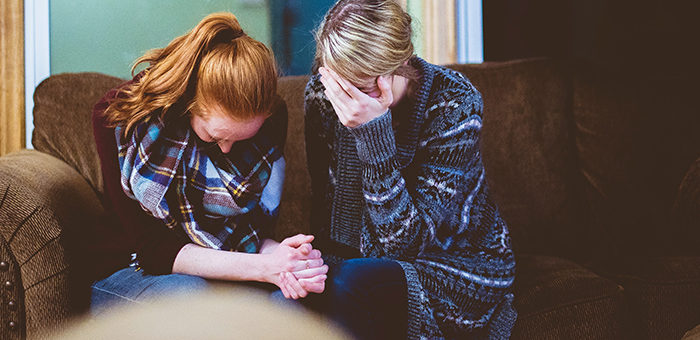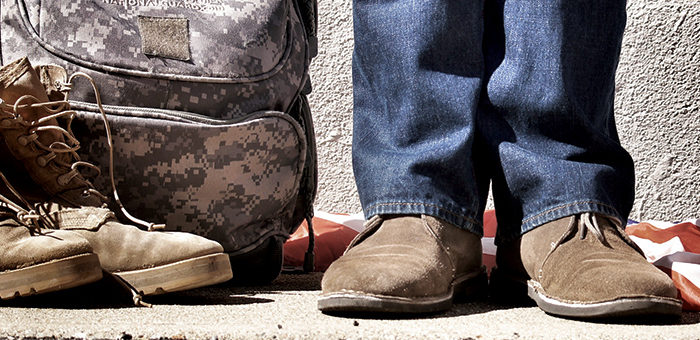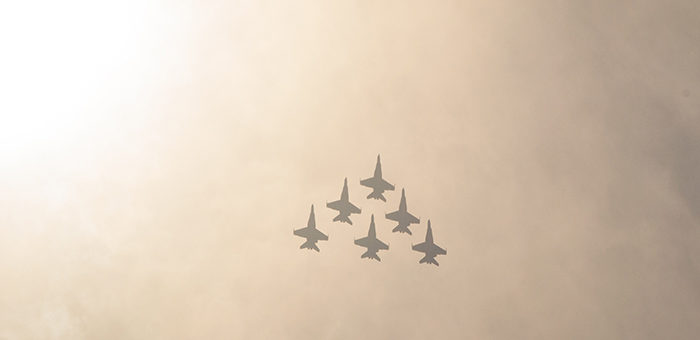I recently saw a news segment reporting on the work of chaplains in the COVID-19 environment. It noted that chaplains are becoming the front line of faith-based ministry. Truthfully, chaplains have always been on the front lines of ministry. Whether it be military, healthcare, law enforcement or institutional chaplain environments, chaplains are our spiritual first-responders — many times putting their own lives at risk. Their ministry also puts them at risk for Post-Traumatic Stress Disorder (PTSD), among other mental health challenges. I know that firsthand.
The Mission
Chaplains minister to people during the worst times of their lives. Those affected in or after a crisis are emotionally charged or in some state of shock. It is a time when people are most vulnerable. Spiritual care from a chaplain during the crisis usually forever endears them to the ministry. No more significant impact can be made on a person’s life than that of helping that person in a time of crisis. Many people credit the faith interaction as critical in their healing.
Being a crisis chaplain is to be bombarded with negative emotions: anger, fear and grief. Receiving those emotional states multiple times is a recipe for mental health issues in the chaplain’s life. A chaplain’s mission to others is to provide comfort, hope and stability during the crisis. The mission to themselves is to draw strength from God as they navigate one personal crisis at a time.
The Challenge
The problem is that there is rarely time to grieve with so many interactions in such a short period. In situations other than compound crises, there is ample time to process grief, so it has less effect on the chaplain. Unaddressed grief results in unresolved emotional issues. The cumulative impact grows to the point where it can compromise a chaplain’s ability to minister effectively.
Crisis intervention is an inevitable part of every day for military chaplains while serving in a war zone. They not only fear for those they are called to serve, but they also fear for their own lives. The impact on their own mental health is intensified. Most ministers have great sympathy and empathy towards those to whom they minister. Continuing to carry the pain of other people is emotionally tiring. Coupled with the extra load chaplains have in dealing with their own anxiety, grief and depression, the strain can leave them more susceptible to emotional disorders.
“Heal Thyself”
Post-Traumatic Stress Disorder (PTSD) is the most common manifestation of emotional disorders in caregivers. What makes it so challenging is the very ministry and faith used to help others. A chaplain’s role, rank and knowledge can be the very things that work against identifying disorder in their life. Chaplains must overcome these obstacles to seeking help. In medical circles, it is summed up as “physician heal thyself.” We assume being examples of strong faith is enough to protect us. “Surely, if I’m able to identify and help others with PTSD, then I must be okay.” “I teach others coping mechanisms they can use in combating the effects of PTSD.” The higher in rank we go, the less we are willing to admit what we perceive to be a weakness. Our conclusions are based on faulty reasoning.
Before being diagnosed with PTSD, I didn’t want to get help because I didn’t think there was anything wrong with me. I could readily see the effects and identify it in everybody else. I would say, “I know the coping techniques. I know what to do if I feel depressed.” And yet the truth is I was exhibiting all the criteria for PTSD. I was thankful, but not happy. I was grateful because I made it back from deployment when so many didn’t.
Unaware, Not in Denial
Not admitting you have a PTSD problem isn’t always about being in denial, it is about being unaware. Having bad breath affects the people around you. Most of the time, you are clueless about the smell and the impact you’re making on people around you. Putting it another way, what is something that everyone else can see, but you never can? The answer is your own face. Everyone sees your face except you. All we see is the reflection of our face in a mirror or photograph. We may not even be aware of our reactions. We can’t see ourselves roll our eyes or make a facial expression. That is why we have our own interpretation of our words, expressions and actions. Others may have an entirely different interpretation by what they surmise from the reactions on our face.
In a recent survey of chaplains of the Evangelical Chaplains Commission, the following information
was reported:
- 22 percent have been diagnosed with Post Traumatic Stress Disorder.
- 26 percent have not been diagnosed, but believe they have PTSD.
- 45 percent have experienced anxiety outside of the normal levels.
- 7 percent are currently taking antidepressants, anti-anxiety or psychotropic drugs.
- 26 percent have sought help for a mental disorder during their chaplaincy career.
- 15 percent have considered or attempted suicide during their chaplaincy career.
Mental health disorders are very real in the lives of many chaplains. While some have sought help and received it, others still cling to the notion that they can’t have them. During my treatment, the psychiatrist told me numerous times that my biggest hurdle was not giving myself permission to have PTSD. It was not until I gave myself permission and accepted that it wasn’t a weakness that things begin to change for the better. My prayer is that many others suffering the effects of PTSD and other mental illnesses will give themselves permission.
This article originally appeared in Evangelicals magazine.
Chaplain Steven E. West, NAE director of chaplaincy, served as an active duty chaplain in the U.S. Air Force. He served in the Air Force and Army for 41 years, retiring from his distinguished career as senior chaplain for Joint Base Langley/Eustis. West is the author of “The Bronze Scar: Understanding How PTSD Feels to Help Victims and Those Who Support Them.” He is a graduate of University of Mobile, New Orleans Theological Seminary, Alabama Theological Seminary and the Department of Defense Joint Staff College.




 View All Articles
View All Articles 




